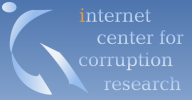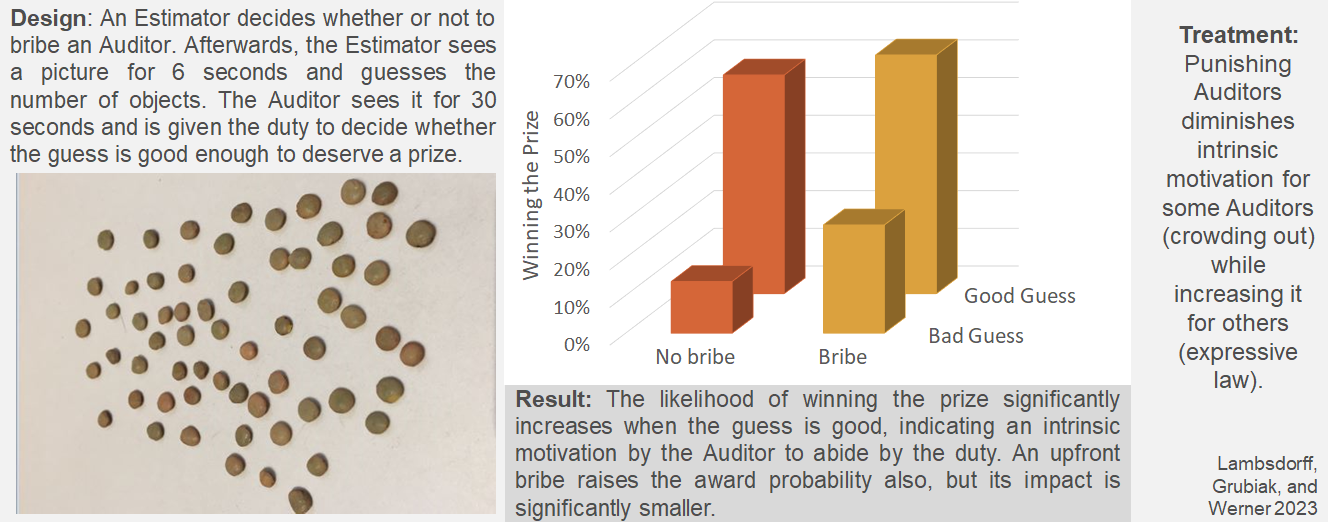
| Home |  |
| Home | |||
| Contact information | |||
| Research Area | |||
| Corruption Perceptions Index | |||
| Lecture and Workshops |
The Internet Center for Corruption Research holds workshops on the economics of corruption with a focus on behavioral approaches to anticorruption.
Economics of Corruption 2023:

From September 24-30, 2023 the University of Passau offers the workshop "The Economics of Corruption 2023: Pathways to a trusted public sector".
The event is targeted towards PhD and master-students with an interest in experimental and behavioral approaches to corruption and reform. More details are available here.
June 2023: A first discussion paper is out on our large research project (see below)
"Intrinsic Motivation vs. Corruption? Experimental Evidence on the Performance of Officials" Please approach the paper here .Abstract There are conflicting views as to whether corruption or intrinsic motivation plays a greater role in determining the performance of public officials. We run an experiment that incorporates both viewpoints and assess the relative strength and interplay of these respective factors. The design introduces some realism into an everyday exchange between an Estimator (businessperson) and an Auditor (public official) and induces a gray area between intrinsic motivation, extortion and bribery. The Estimator can make a large transfer in the hope of avoiding unfair treatment (extortion) or obtaining an undeserved benefit (bribery). The Auditor may be intrinsically motivated to fulfill her duty or may be corrupted by transfers. We find that intrinsic motivation has a much higher impact on the performance of Auditors than corruption. In a treatment with punishment, Auditors are significantly less likely to accept a large transfer. But punishment fails to bring about favorable welfare effects due to two forces offsetting each other on the individual level. Intrinsic motivation increases for some subjects, supporting the ''expressive law'' literature, while it decreases for others, supporting the ''crowding-out'' literature. We infer that punishing officials is an unproblematic tool for fighting corruption, but its effectiveness is called into question. Policies should focus more on preserving officials' intrinsic motivation and worry less about their corruptibility.
Keywords Bribery, crowding-out, expressive law, extortion, intrinsic motivation

New DFG-research project "Between responsibility and reciprocity - contributions of experimental corruption research "
Since 2021, Prof. Dr. Johann Graf Lambsdorff heads a new research project, funded by the German Research Council (DFG). The project is devoted to experimental research in the lab related to corrupt temptations, responsibility and reciprocity. For details, please approach the DFG's website.